Aspirin For Acne: Does It Really Work?
Research shows this drug may help skin issues like vitiligo, swelling, and inflammation.
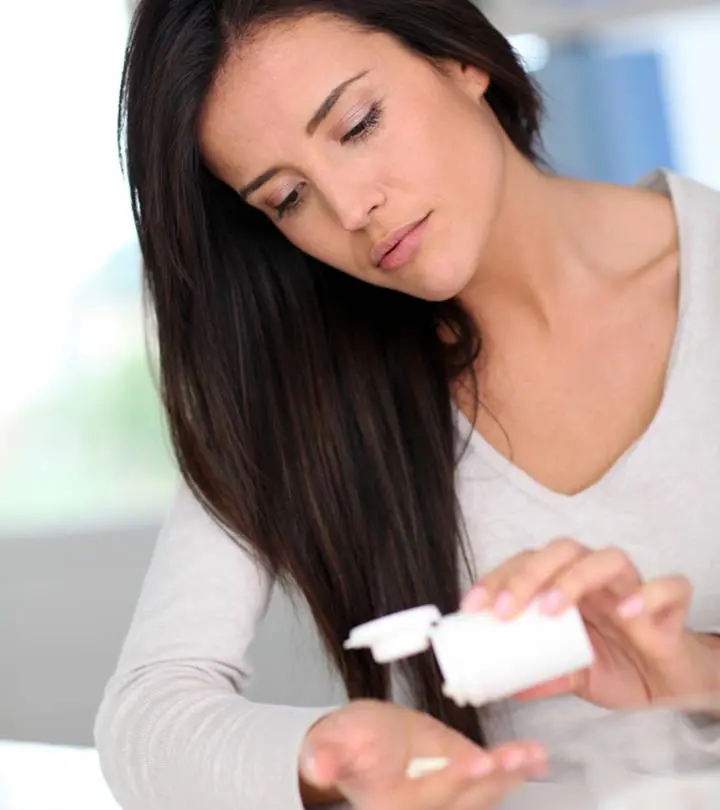
Image: Shutterstock
You might have popped aspirin to get rid of that throbbing headache, cold, and fever. However, do you know that you can also use aspirin for acne? Applying crushed aspirin to the breakouts is one of the many DIY skincare remedies for pimple prevention. However, does this practice have any scientific merit? Does topical aspirin heal acne or reduce inflammation? This article attempts to explore the truth behind the claims. Read on.
In This Article
Aspirin: Does It Have Any Role In Dermatology?
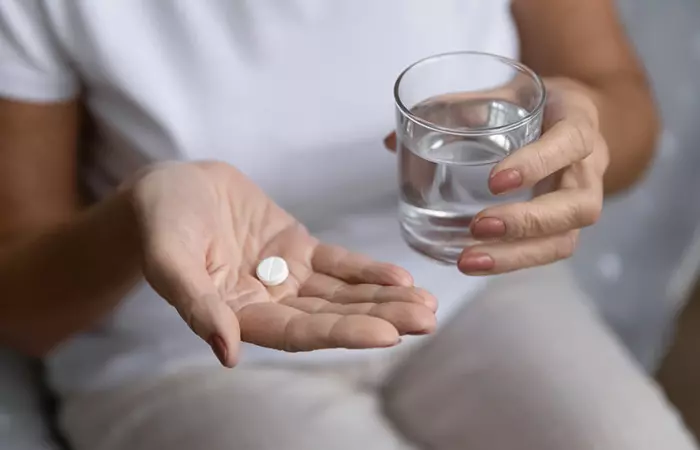
Aspirin is used as an analgesici A type of drug specifically formulated to reduce or relieve pain without causing the loss of consciousness. for relieving pain. However, with time, it has evolved from its traditional role as a pain reliever and become a drug that has a wide range of applications. It is often crushed and used for skin exfoliation in homemade masks. It is a popular home remedy for acne and rosacea.
In dermatology, aspirin is used in off-label and unapproved ways. It is beneficial in the treatment of Raynaudi A disorder in which particular parts of the body become numb and cool under certain circumstances. ’s phenomenon, erythema nodosum (a type of skin inflammation), vitiligoi A condition that causes the loss of skin color in patches or blotches due to a lack of melanin in the skin. , postherpetic neuralgiai A persistent ache in the areas of your skin where you had shingles infections. , skin changes caused by niacini A nutrient found in the vitamin B complex, required by the body in minimal doses to function and maintain health. , sunburn reaction, mild type 1 lepra reactions, and an itchy skin condition associated with polycythemia vera (1).
Another study found that topical application of aspirin could help reduce histamine-induced swelling provide skin redness relief. The study involved 24 patients with skin rashes caused by sodium lauryl sulfatei A foaming agent/surfactant found in a majority of personal care items, soaps, and industrial cleansers. (SLS) (2).
Therefore, aspirin, when used for both oral and topical treatments, can help control the symptoms of several skin conditions. But, is it equally effective on acne?
Key Takeaways
- Anecdotal evidence suggests that aspirin may help reduce skin inflammation. Thus, speeding up the healing of acne.
- It contains acetylsalicylic acid, which may help reduce acne inflammation.
- You can apply aspirin to the affected area by crushing the pills. You may also add aloe vera gel or tea tree oil to the aspirin for the best results.
- However, aspirin may make your skin dry, worsening breakouts.
Aspirin For Acne: Is It Effective?

So far, there is no scientific proof that aspirin can reduce acne.
So why do people use aspirin for acne? The idea behind using aspirin for acne stems from the fact that aspirin contains acetylsalicylic acid. Salicylic acid is one of the popular anti-acne products. Salicylic acid treats acne vulgaris by working as a chemical exfoliant and helps acne-prone skin by using its antibacterial properties in acne-prone areas. It also promotes skin healing and skin cell renewal. (3).
Acetylsalicylic acid is a synthetic derivative of salicylic acid. It is created by a chemical reaction between salicylic acid and acetic acid (4). They may sound similar, but aspirin is not the same as salicylic acid and vice versa. Aspirin should not be used in place of other acne treatments like monotherapy with benzoyl peroxide without consulting a dermatologist.
However, many people who used crushed aspirin on acne, especially inflammatory acne, have seen results. How is it possible?
Inflammatory acne is caused by clogged pores that occur due to the accumulation of dead skin cells, sebum, and bacteria. Once these pores are unclogged, the infection disappears, and the inflammation reduces. Aspirin, known for its skin calming property, is mainly used for reducing inflammation. But its efficacy in lowering acne-related inflammation is not known.
The main idea behind using aspirin for acne is to use acetylsalicylic acid – the way salicylic acid is used – to treat acne. Sometimes, it works, and sometimes, it doesn’t. Aspirin helps dry out the inflammation, which could clear the infection and reduce acne.
 Did You Know?
Did You Know?Although clinical studies are showing the efficacy of aspirin in reducing skin inflammation related to multiple conditions, there’s no scientific evidence to support this popular DIY remedy for acne. If you still want to try using aspirin to treat acne, we are here to help you.
Check out the next section.
How To Use Aspirin For Acne
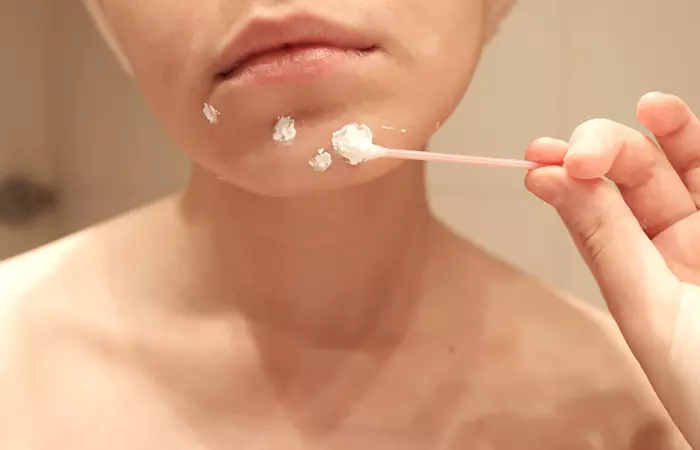
There is no specific way to use aspirin on your face for acne. As it is a home remedy, there is just a general method of using it. However, you can add a few ingredients to modify it according to your’s skin’s needs.
To use aspirin:
- Crush a few aspirin tablets in a bowl.
- Add enough warm water to create a paste.
- Once you get the desired consistency, use the paste as a spot treatment.
- Apply the paste on the inflamed area and leave it on for a maximum of 15 minutes.
- Wash it off with warm water.
- You may follow it up with a moisturizer.
To this mixture, you may add:
- Aloe vera gel – It helps reduce inflammation when applied on the skin (5). It also protects the skin from UV rays which is needed for acne-prone sensitive skin and may also help with skin brightening.
- Tea tree oil (just a drop or two) – It is one of the main natural remedies used in treating mild to moderate acne. Tea tree oil also helps in acne scars prevention and skin protection (6). It may also promote skin rejuvenation.
- Witch hazel – It has anti-inflammatory properties that help in skin soothing and provide skin nourishment (7).
These ingredients can help clear the infection and reduce acne. You can add them to the aspirin and water paste and use it as an acne spot treatment. You can repeat the process once every day until the infection has cleared. Additionally, understanding how to prevent acne can complement this treatment and promote healthier skin.
Amanda Bellantoni, a YouTuber, shared a DIY chemical peel using aspirin. She applied the mask to her face and allowed it to dry. After cleaning her face, she revealed soft and refreshed skin, recommending the treatment for a bedtime routine or a quick pick-me-up. She said, “Once your face is clean, pat it dry and enjoy your seriously soft and refreshed skin (i).”
There are several precautions that you should follow when using aspirin on your skin as it has certain side effects.
Possible Side Effects Of Topical Aspirin And Precautions
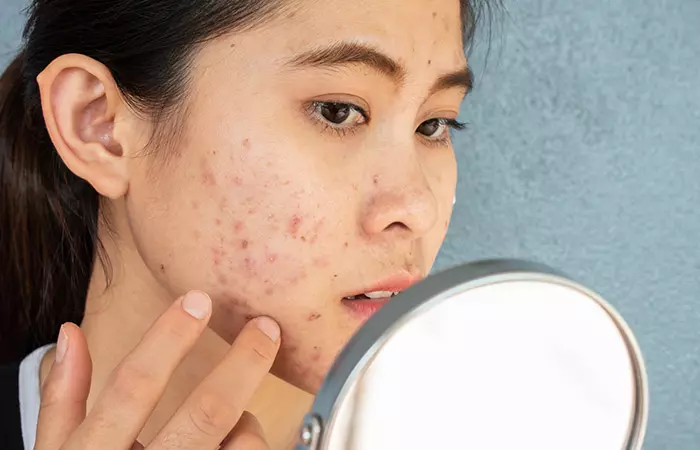
- Aspirin can dry out your skin and may worsen breakouts. Therefore, avoid using too much of it on your skin.
- It may cause skin irritation along with redness and flakiness. Instead of using it all over your face, use it only for spot treatment. Also, follow it up with a moisturizer.
- If you are using salicylic acid or any other acne treatment on your skin, avoid using aspirin. It may dry out your skin further.
- It may increase your skin’s sun sensitivity. Always apply sunscreen when going out in direct sunlight.
- Avoid using aspirin for acne if you are pregnant or lactatingi The process of producing and releasing milk from the mammary glands in the breasts during pregnancy. .
- Avoid aspirin if you are allergic to Nonsteroidal Anti-Inflammatory Drugs or NSAIDs, such as Advil and Ibuprofen.
 Did You Know?
Did You Know?If you’re wondering how azelaic acid fares against salicylic acid, then read on.
Is Azelaic Acid A Better Alternative For Acne?
Azelaic acid and salicylic acid are both commonly used for treating acne. Even though aspirin is prepared from salicylic acid, it has different mechanisms of action and intended uses.
Azelaic acid is a topical medication and is also used to treat rosacea. It helps reduce inflammation, decongests pores, and has antibacterial properties, making it effective for mild to moderate acne and post-inflammatory hyperpigmentation (8).
On the other hand, aspirin is not typically used as a primary acne treatment but its anti-inflammatory properties may help reduce redness and swelling.
While both can have anti-inflammatory effects, their applications and effectiveness vary. Azelaic acid is a dedicated acne treatment and compared to aspirin, it is a better treatment for acne. However, always consult a dermatologist to determine the best approach for your specific acne concerns.
Infographic: Things To Know Before Using Aspirin
Apart from treating, headaches, colds and fevers, aspirin is a common home remedy to treat acne breakouts. But is this effective? Does this have any scientific backing? Check out the infographic below for more details.

Illustration: StyleCraze Design Team
Many of us rely on home remedies and quick fixes to heal occasional breakouts. There are more effective treatment options like skin resurfacing treatments to reduce acne scars. Using crushed aspirin for acne is a widely used home remedy. However, it may not work for everyone, and topical aspirin may also aggravate the inflammation. Therefore, you must be extremely cautious before trying random home remedies for managing acne. Since multiple factors may trigger acne, you must first determine the exact reason. Hence, always consult a doctor to determine the causes of the breakouts and follow the prescribed treatment for better acne breakout management.
Frequently Asked Questions
How does aspirin interact with other acne treatments, and what impact could it have on skin health?
Aspirin contains salicylic acid that may complement acne treatments by reducing inflammation. However, combining it with harsh chemicals like retinoids or benzoyl peroxide may dry out or irritate the skin. You should always do a patch test prior to topical application to check for any adverse reactions.
How long should I leave aspirin on a pimple?
If you use aspirin as a part of a mask, leave it on your pimple for about 15 minutes and wash it off. If you apply aspirin only on the affected spot, you can leave it overnight.
How long do you leave aspirin paste on acne?
It depends on the type of acne. You can apply aspirin paste on pimples and papulesi Small, firm, or cystic elevated spots on the skin less than 1 cm in width. It is a specific kind of skin lesion. for an hour or overnight. But, it may not work for blackhead removal or whitehead removal. Keeping aspirin on your skin for longer may irritate or dry the skin.
Does aspirin lighten skin?
Topical aspirin application may help to gently exfoliate the skin. However, there is no evidence available to prove that aspirin can help lighten the skin. Therefore, more research is warranted in this arena.
Is aspirin absorbed through the skin?
When applied topically, aspirin can be absorbed into the skin, but its absorption is slow (9).
Illustration: Aspirin For Acne: Does it Really Work?
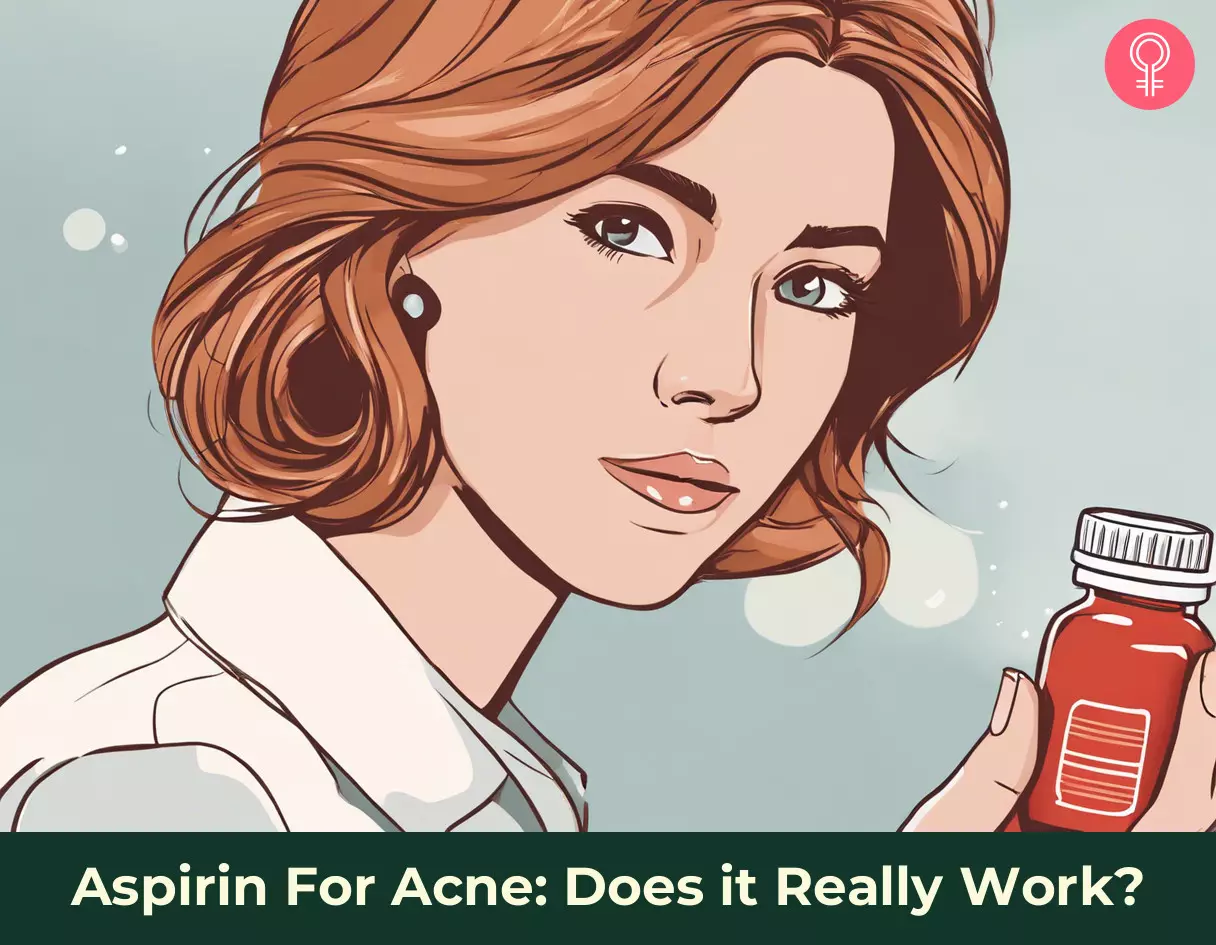
Image: Stable Diffusion/StyleCraze Design Team
Learn how to use aspirin to treat acne! Click on this video to find out tips on how to use it on your skin for blemish-free and glowing results.
Personal Experience: Source
StyleCraze's articles are interwoven with authentic personal narratives that provide depth and resonance to our content. Below are the sources of the personal accounts referenced in this article.
(i) Dr. Oz’s Aspirin Face Maskhttps://www.youtube.com/watch?v=e1_-doUVECk
References
Articles on StyleCraze are backed by verified information from peer-reviewed and academic research papers, reputed organizations, research institutions, and medical associations to ensure accuracy and relevance. Read our editorial policy to learn more.
- Aspirin in dermatology: Revisited, Indian Dermatology Online Journal, US National Library of Medicine, National Institutes of Health.
https://www.ncbi.nlm.nih.gov/pmc/articles/PMC4693360/ - Topically applied aspirin decreases histamine-induced wheal and flare reactions in normal and SLS-inflamed skin, but does not decrease itch. A randomized, double-blind and placebo-controlled human study, Acta Dermato-Venereologica, US National Library of Medicine, National Institutes of Health.
https://pubmed.ncbi.nlm.nih.gov/12013195/ - Salicylic acid as a peeling agent: a comprehensive review, Dove Press, Clinical, Cosmetic and Investigational Dermatology.
https://www.ncbi.nlm.nih.gov/pmc/articles/PMC4554394/ - Aspirin, PubChem, National Center for Biotechnology Information, US National Library of Medicine, National Institutes of Health.
https://pubchem.ncbi.nlm.nih.gov/compound/Aspirin - Aloe Vera: A Short Review, Indian Journal Of Dermatology, US National Library of Medicine, National Institutes of Health.
https://www.ncbi.nlm.nih.gov/pmc/articles/PMC2763764/ - The efficacy of 5% topical tea tree oil gel in mild to moderate acne vulgaris: a randomized, double-blind placebo-controlled study, Indian Journal Of Dermatology, Venereology And Leprology, US National Library of Medicine, National Institutes of Health.
https://pubmed.ncbi.nlm.nih.gov/17314442/ - Moisturizers for Acne, The Journal Of Clinical And Aesthetic Dermatology, US National Library of Medicine, National Institutes of Health.
https://www.ncbi.nlm.nih.gov/pmc/articles/PMC4025519/ - [Azelaic acid in the treatment of acne]
https://pubmed.ncbi.nlm.nih.gov/2530163/ - Effects of cutaneous aspirin on the human stomach and duodenum
https://pubmed.ncbi.nlm.nih.gov/10519166/#:~:text=Aspirin%20placed%20on%20the%20skin,may%20minimize%20the%20gastrointestinal%20effects.
Read full bio of Dr. Jyoti Gupta
Read full bio of Ramona Sinha
Read full bio of Eshna Das
Read full bio of Krati Darak





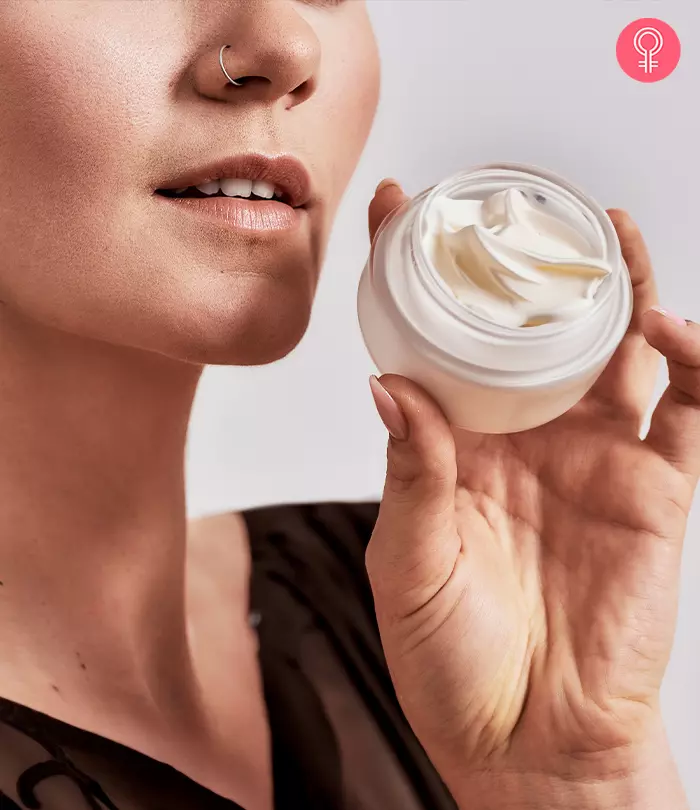
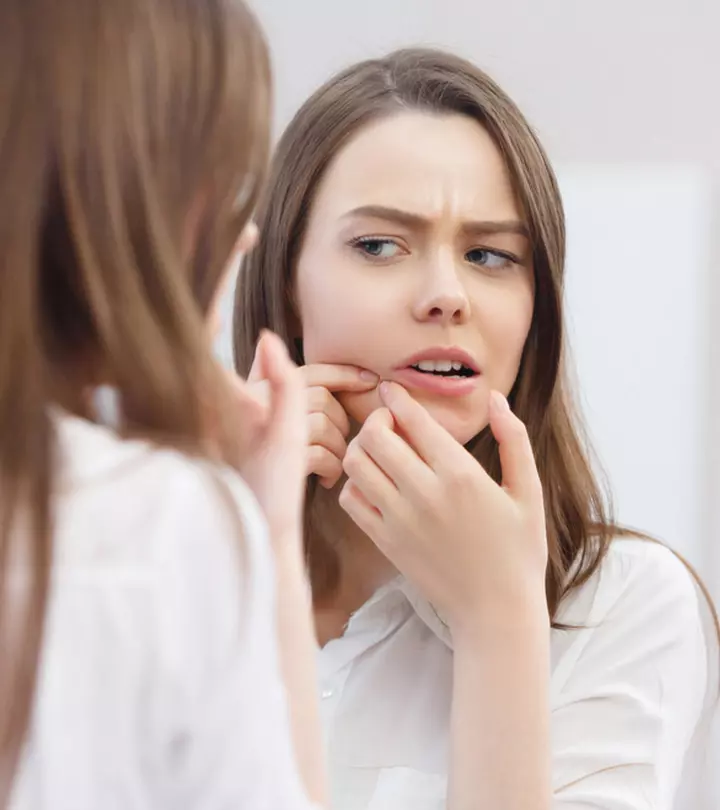
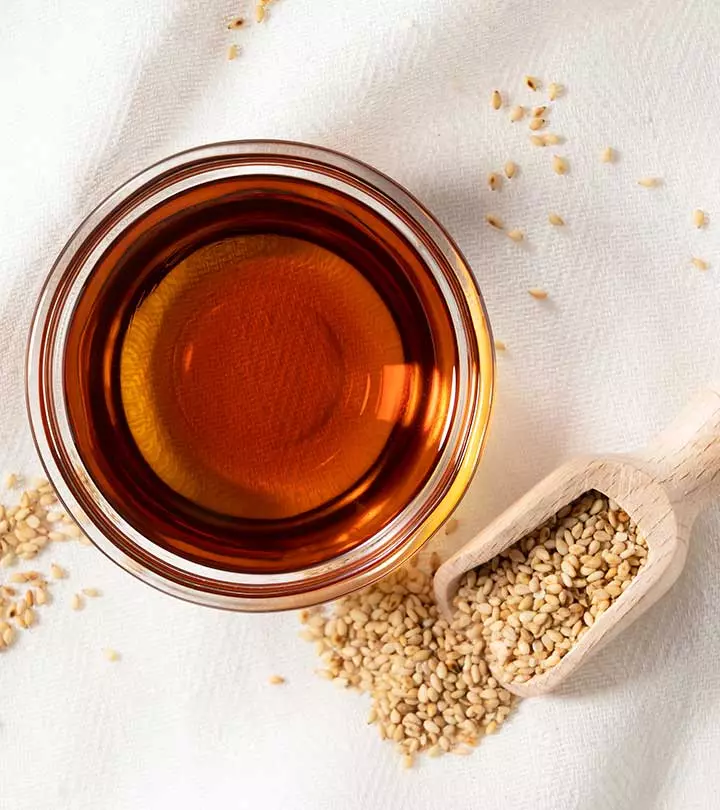
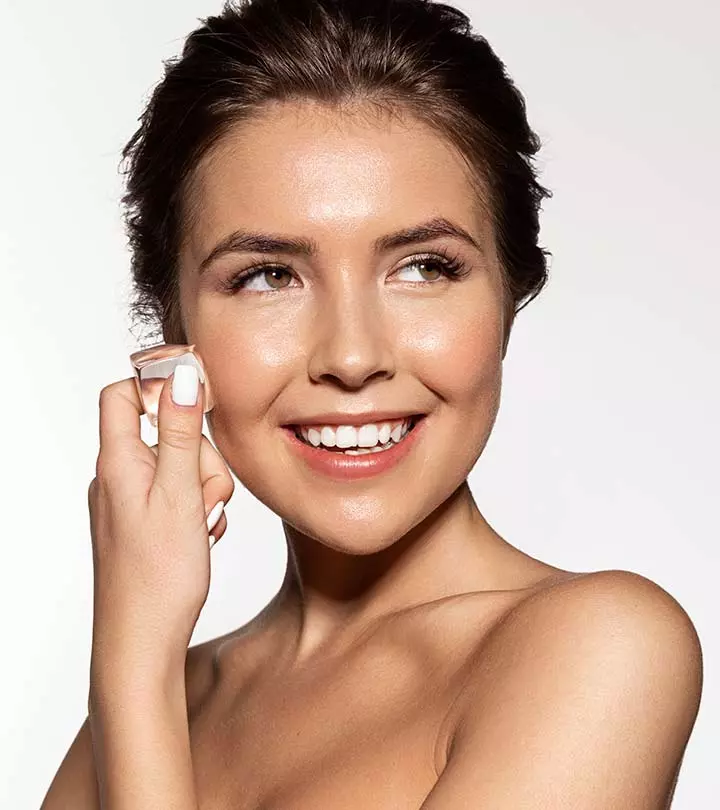
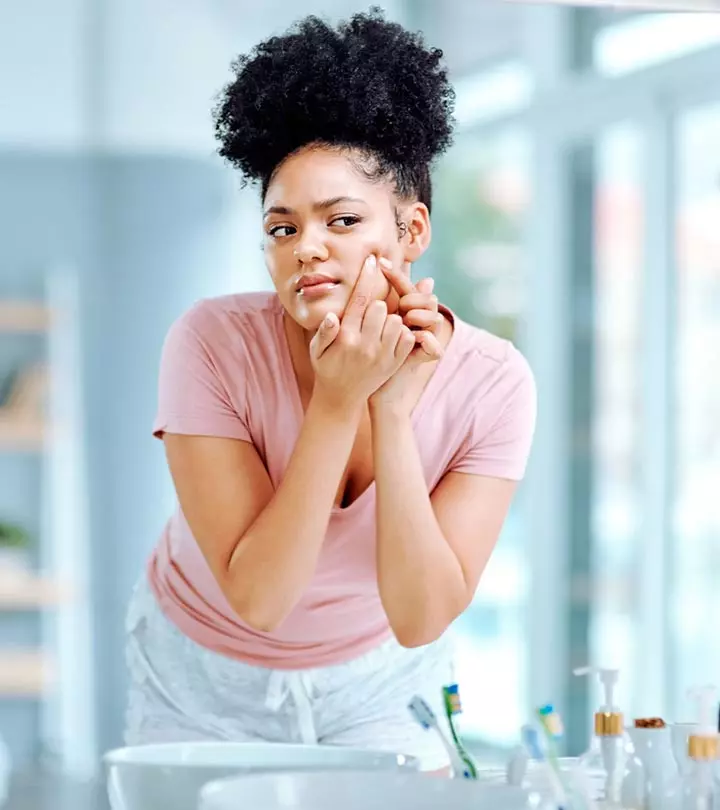

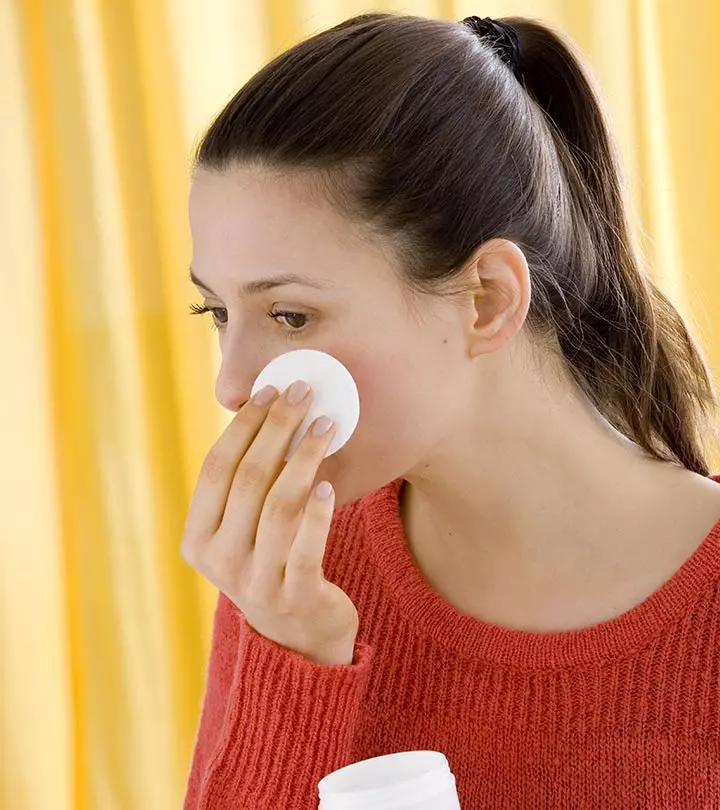
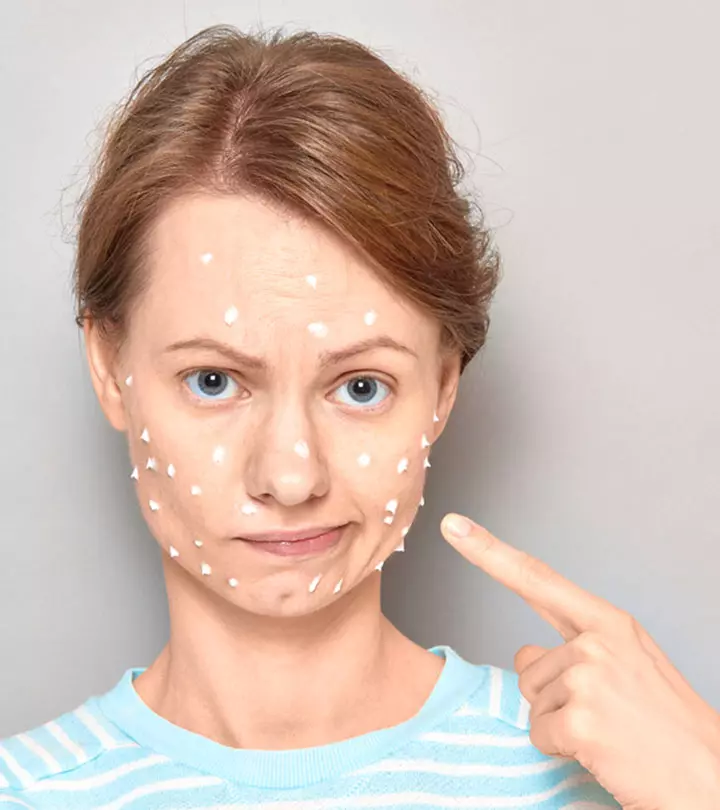


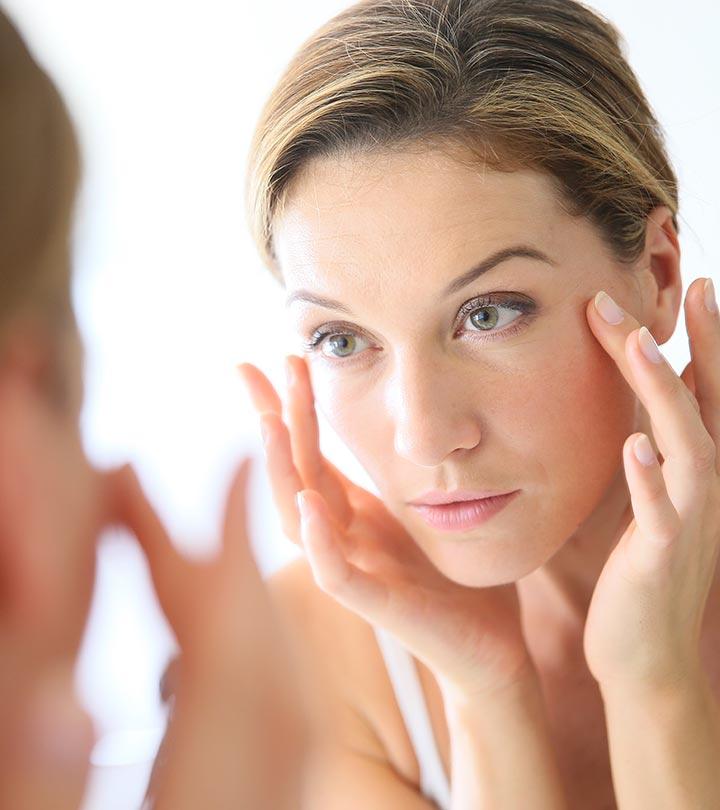

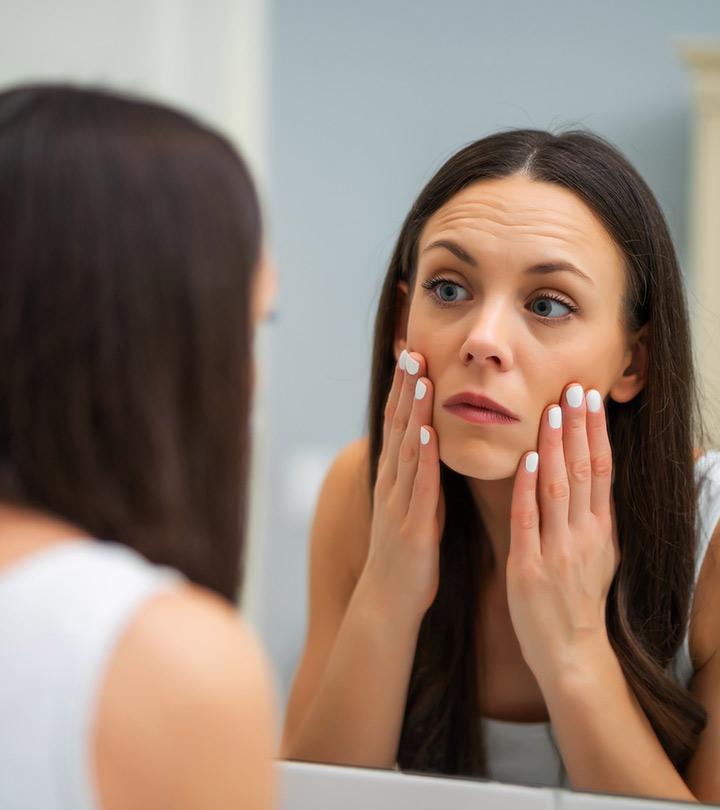
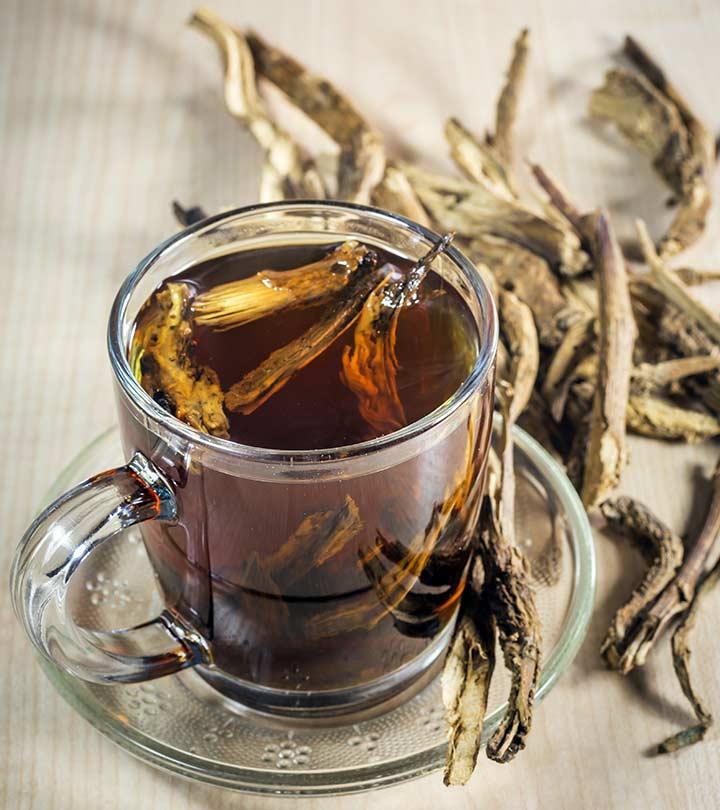




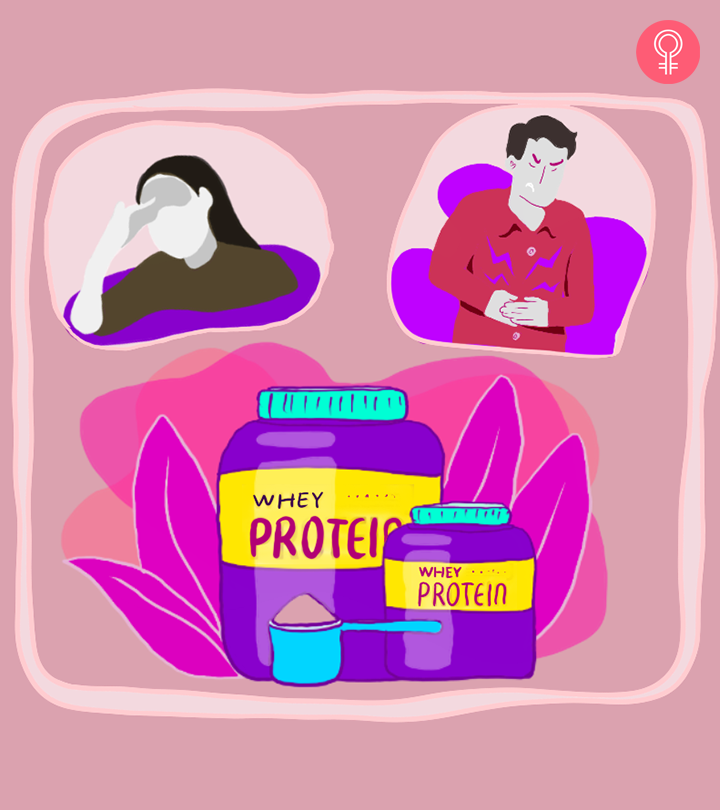


Community Experiences
Join the conversation and become a part of our empowering community! Share your stories, experiences, and insights to connect with other beauty, lifestyle, and health enthusiasts.